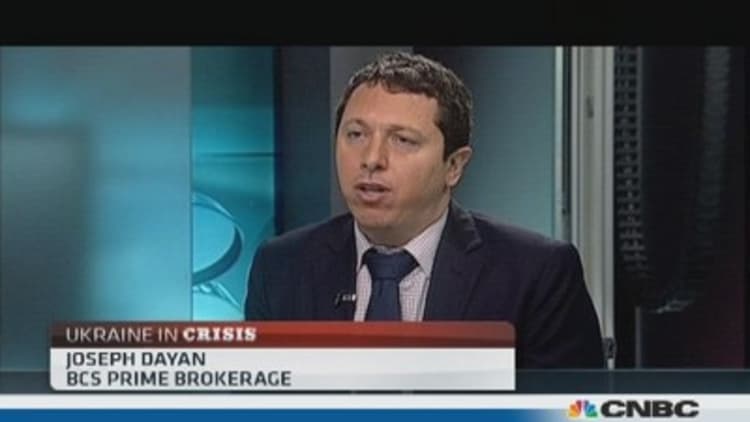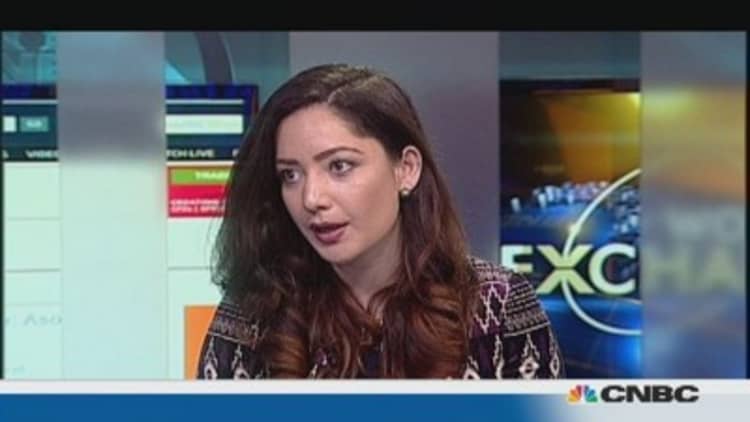Ukraine may still be reeling from the apparent loss of Crimea and trouble on its Eastern borders with ethnic Russians, but its economic battles may ultimately be more important.
While the country is still smarting over the Crimea situation, one potential positive from this situation could be better financial treatment from the West.

A West which "has not the stomach to sanction Russia for its actions in Crimea…will try and sweeten the pill with a more generous aid package," from the International Monetary Fund, Tim Ash, head of emerging markets research at Standard Bank, pointed out.
One rare point of consensus is that Ukraine is desperately in need of financial assistance, with foreign exchange reserves of just $12 billion and a GDP per capita of $3,867 in 2012, according to the World Bank.
(Read more: Another Crimea? Ukraine's neighbor asks to join Russia)
If Russian trade, which accounts for around 20 percent of exports from and 30 percent of imports to Ukraine, according to Nomura, is removed from the equation, this could be a severe shock to the economy. Ukrainian banks and even chocolate factories in Russia have already been targeted.
European leaders are meeting on Thursday and Friday to discuss potentially raising sanctions on Russia, and how to help Ukraine's economy recover from years of dominance by a select few oligarchs. They helped Ukraine edge closer to EU membership by signing the Association Agreement on Thursday. Although the country is nowhere close to the economic standards required for membership, this is an important step.

(Read more: Ukraine causes risk sell-off)
Without external assistance, the economy could get much worse before it gets better. Ukraine has committed itself to repaying the $3 billion loan it received from Russia in December, which was supposed to be part of a $15 billion bailout.
The good news is that debt-to-GDP levels are less than 50 percent, and the country should be relatively cheap for the IMF to rescue. This should mean that no external debt restructuring or default is needed, according to Vadim Khramov, economist at Bank of America Merrill Lynch.
"It would be hard to explain to western creditors and Russia at the same time that the default on their bonds was necessary, when the West wants to make Ukraine "work" to avoid it falling back into Russian hands," he pointed out.
(Read more: We're broke but we won't default: Ukrainian FinMin)
The banking sector needs $3-10 billion of extra capital in 2014-16 of capital, according to Bank of America Merrill Lynch.
In the economic context, Crimea is not a huge loss: its GDP is only 3 percent of Ukraine's and it is backed in large part by government subsidies.
The new government has stopped public procurement, which has been criticized for corruption, until new anti-corruption legislation comes in. This should hopefully make the process for winning government tenders more transparent.
At the moment, subsidies on the price of natural gas (if you are a Ukrainian, you pay around 30 percent of the market rate) have helped the average Ukrainian's small salary stretch. If these are removed – as may be necessary to get an IMF loan – ordinary Ukrainians will be hit in their already small purses.
- By CNBC's Catherine Boyle. Twitter: @cboylecnbc.


